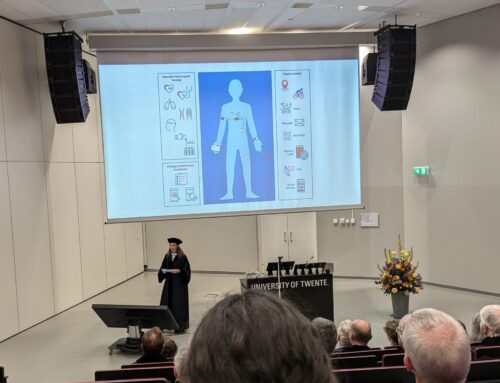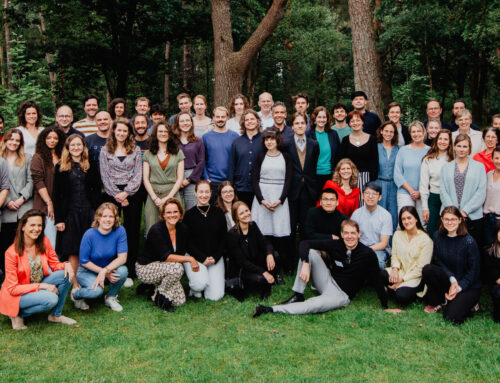More focus on stress: healthy for individuals and organisations
Amsterdam UMC and a variety of partners are developing an innovative approach to tackle stress and increasing resilience within organisations. This pioneering €10.6 million initiative is funded by the Dutch Research Council (NWO) within the National Science Agenda programme.
Christiaan Vinkers (Professor of Stress & Resilience at Amsterdam UMC) says: “At a time when stress levels are reaching unprecedented heights both on an individual and collective level, DESTRESS is much needed. There are now 2.9 million absenteeism days each year due to psychological causes and more than a billion euros of absenteeism costs due to stress.”
Stress is a major threat to the health of individual working people and the overall functioning of organisations. An organisation can only be resilient if its employees are too. The central question is: can we effectively identify and address rising stress and risks on stress for both the individual level and the organisational level?
‘DESTRESS focuses on reducing stress and increasing resilience in both individuals and organisations.’
The necessity of an integrated approach to stress
Tackling stress and increasing resilience is a challenge for many companies. In fact, making stress negotiable is not a given. Signs of stress are also often recognised too late and it is not always clear who should deal with this. Moreover, stress is not only caused by work, but often also by someone’s private situation. Especially at an early stage, there is a great importance for organisations and individuals not to let stress escalate and maintain resilience. DESTRESS aims for a consistent scientific basis with an approach that connects the perspective of individual and organisation, and also ensures that responses to stress signals are sustainable and effective. Vinkers: “With the launch of DESTRESS, we are taking an important step forward to tackle stress and promote organisational and individual resilience. Employees now often drop out unnecessarily due to stress. Problems in the organisation are the result. We need to do something about that.”
What will DESTRESS do?
DESTRESS focuses on reducing stress and increasing resilience in both individuals and organisations. The aim is to recognise stress at an early stage by measuring stress signals from individual and environment by artificial intelligence, responsibly brought together, because it is necessary to bring together much data on stress. For this reason, researchers from sociology, law and ethics are also affiliated. This approach allows workers and employers to work together to tackle stress. DESTRESS thus aims to detect stress proactively, creating a healthy and joint dialogue between employers and individual. Ultimately, this should ensure that fewer people drop out due to stress, and organisations are able to ensure at an early stage that their employees, and therefore their business, are doing well.
DESTRESS consortium
DESTRESS is a multidisciplinary consortium of experts who join forces in this research. The consortium represents a wide range of partners and universities, including Amsterdam UMC, Vrije Universiteit Amsterdam, Radboud University and Radboud UMC, TNO, UMC Utrecht, Hanzehogeschool Groningen and Rijksuniversiteit Groningen. During the project, collaboration with MIND will deploy experiental knowledge. There are also partners from the field who ensure optimal implementation, including HumanTotalCare (HTC), Nationale Nederlanden (NN), Movir, De Paradigma Groep (DPG), Healthy Chronos and UWV. They ensure that employer and employee are supported as much as possible to adopt the DESTRESS approach.
The project will be supported by AWVN, CNV, FNV, KOM, Landelijke Vereniging POH-GGZ, Ministerie VWS, Ministerie SZW, NIP, NVAB, NVVA, NVVG, NVvP, OVAL, VRelax, VNO/NCW, VZN en Zorgverzekeraars Nederland.
More information can be found on the website: DESTRESS Project – Home (destress-project.nl)



